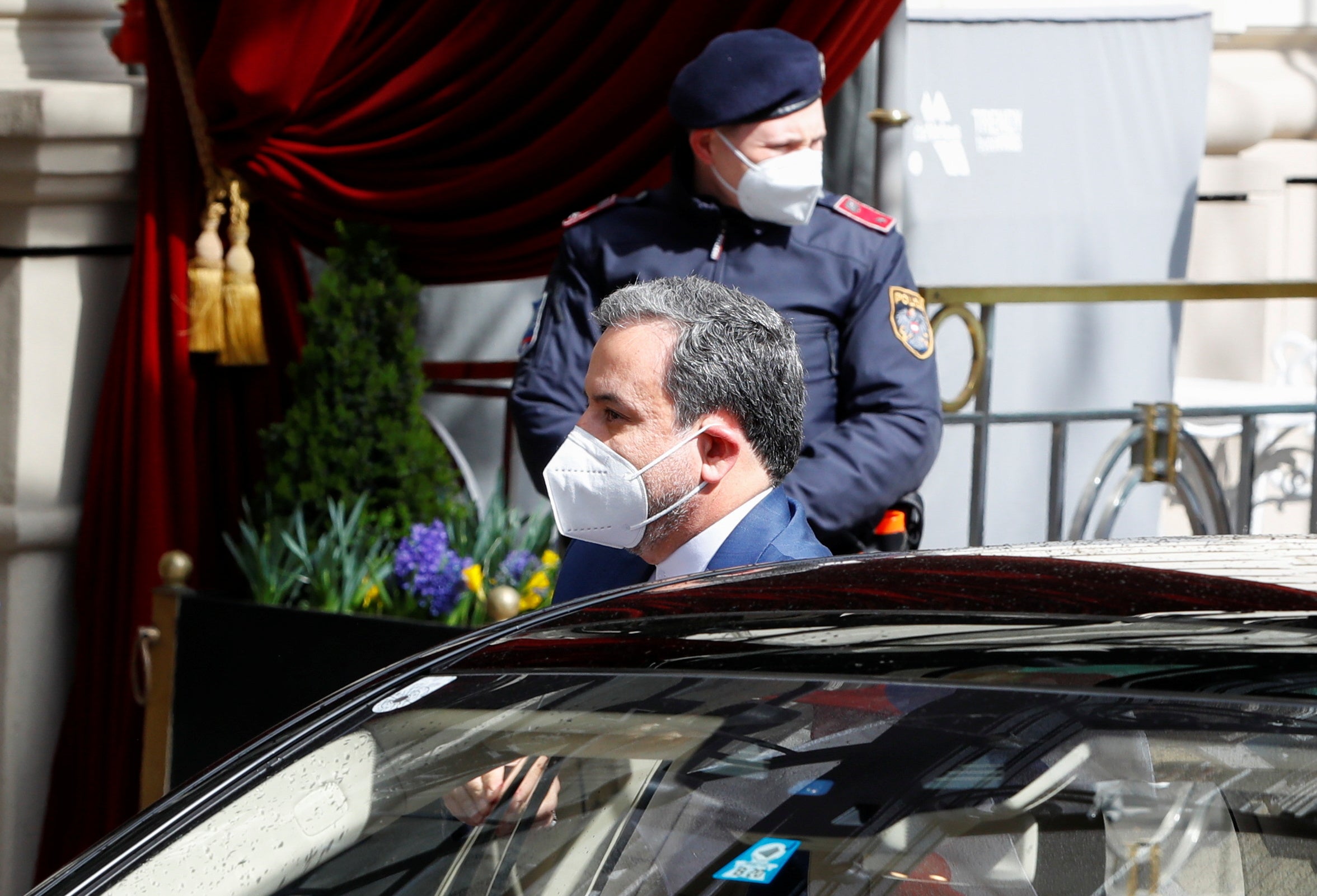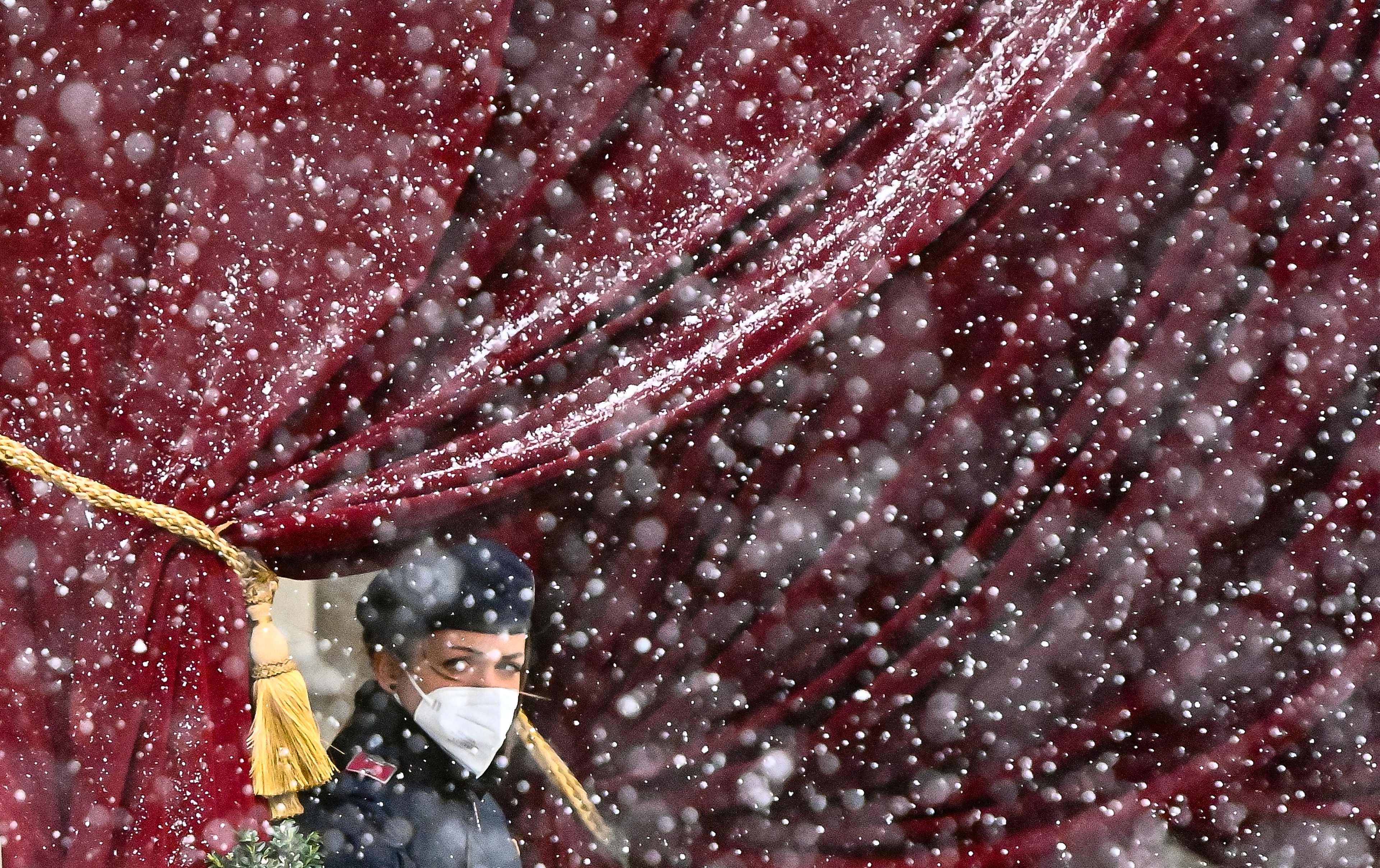In Vienna, a struggle begins to find formula to restore Iran nuclear deal
Although talks began Tuesday, officials have warned they could last weeks

Top diplomats convened in Vienna yesterday in an effort to set out a path for America’s return to the nuclear deal with Iran.
The talks were announced last week and prompted relief among arms controls experts. The discussions, at the opulent 19th century Grand Hotel, are aimed at defining specific steps that both Iran and the US must take to return to the nuclear deal, called the Joint Comprehensive Plan of Action, or JCPOA.
“It enables the Europeans and the five other parties to work out an agreement on how the two sides, Iran and the US, can reach the goal that the two presidents said they agree on: full compliance with the JCPOA,” said Thomas Countryman, a former US arms country official, during an online briefing.
The talks could last weeks.
While Iran and the US were both at the meeting, Tehran has adamantly refused to meet with its Washington counterparts, arguing that until America returns to the deal that was abandoned by Donald Trump by lifting sanctions, it has no official role in the JCPOA.
Read more:
“No negotiations will take place between the representatives of Iran and the United States,” government spokesperson Ali Rabei said in a press briefing on Tuesday.
“But we are ready to convey the message to the members of the JCPOA that in case of lifting sanctions ... the Islamic Republic of Iran is ready to mutually return to all its obligations in the shortest possible time.”
US officials say they want Iran to scale back its nuclear programme before it offers sanctions relief.
Despite the dispute over which country moves first, both Iran and the US have said they are enthusiastic about the deal, and there have been upbeat notes by both US and Iranian officials in recent days. Deputy foreign minister Abbas Araghchi will lead Iran’s delegation while Rob Malley, the head of State Department’s Iran team, will lead the US side.
Diplomats of the other JCPOA signatories, including China, Russia, the UK, France and Germany, also attended the meeting – serving as potential mediators between the US and Iran.
Following Tuesday’s meeting, Russian diplomat Mikhail Ulyanov said: “The restoration of JCPOA will not happen immediately ... the most important thing after today’s meeting of the Joint Commission is that practical work towards achieving this goal has started.”

Complicating any return to the deal are domestic politics in both countries. US president Joe Biden faces off against hardline anti-Iran hawks, including some within his own Democratic Party, who have long been sceptical about the JCPOA.
Iran presidential elections in June have sharpened factional infighting within the establishment over the deal. One hardline newspaper characterised the Vienna meeting as “stepping into a trap” on its front page.
“If they had dedicated the time spent on seeking the west’s concessions to boosting domestic production, the problems would have been solved,” judiciary chief Ebrahim Raisi, who and lost to Iranian president Hassan Rouhani in the 2017 elections, and who has been critical of Tehran’s handling of the matter, was quoted as saying in newspapers on Tuesday.
US officials are growing alarmed as Iran’s so-called breakout time to quickly retrofit its complex of nuclear technology facilities for bomb-making has decreased from a year to less than a few months as its nuclear programme has ramped up in response to increasing sanctions.
Experts have warned that the Biden administration was seduced by ideas percolating within hawkish Washington circles that Trump’s thousands of sanctions could be used as leverage to pressure Iran into a deal more favourable for the US.
“We have more leverage going back into the deal than we do out of it,” said Suzanne Dimaggio, of the Carnegie Endowment for International Peace, during a briefing. “Right now we have no leverage – it’s an illusion. Once we’re back in the deal is when we’ll have more influence.”
Join our commenting forum
Join thought-provoking conversations, follow other Independent readers and see their replies
Comments
Bookmark popover
Removed from bookmarks